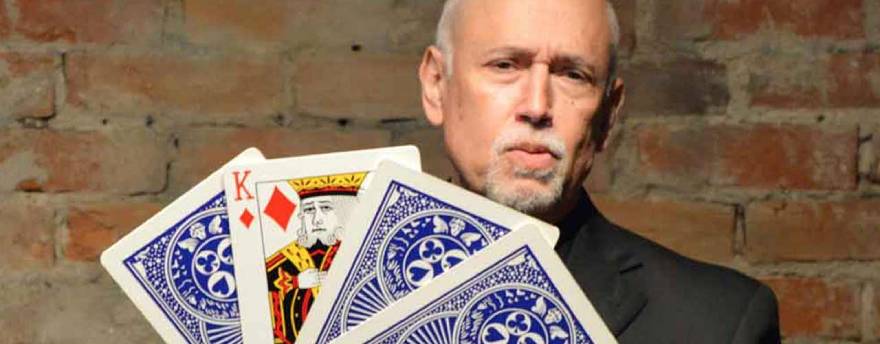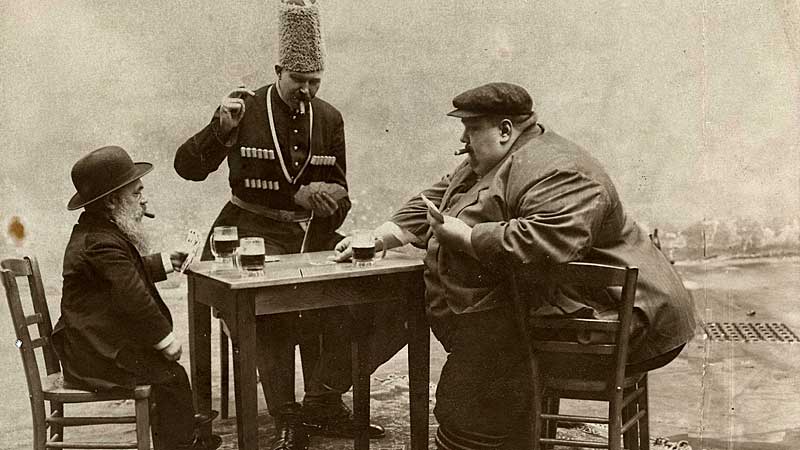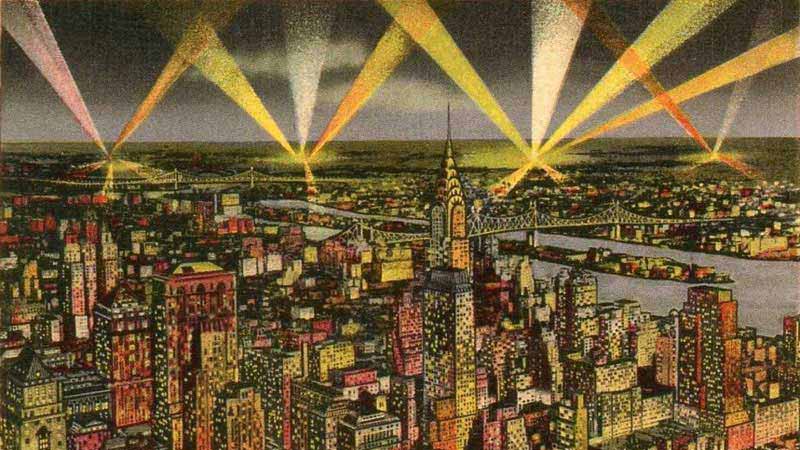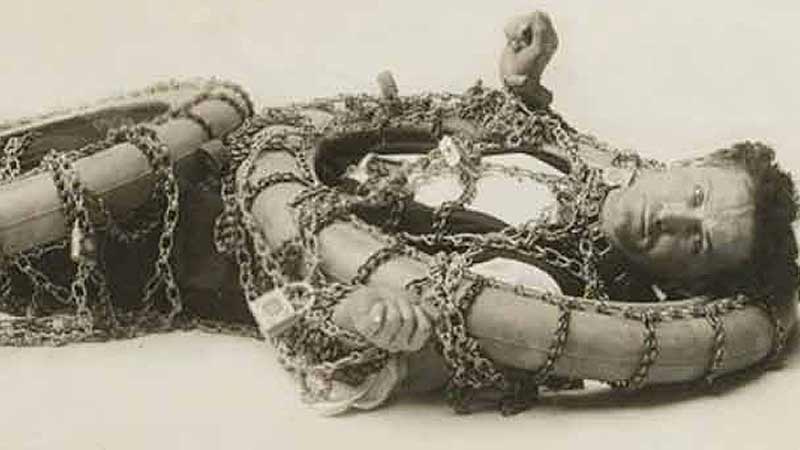Michael Close's "Performing on Penn & Teller's 'Fool Us'" Podcast Interview
by Christian Painter and Roland Sarlot

What We'll Explore
As the magic consultant on Penn and Teller's "Fool Us", Michael Close shares what it takes to perform on the show including if you should design a super fooler, do card tricks increase your chances, which recordings never go live, the logistics of the massive stage, how to be filmed effectively, hiring a consultant, how egos can drown themselves, and improving your script.
Who is Michael Close?
Michael has been a professional magician for 43 years specializing in close-up and restaurant magic and has authored numerous magic books with his most famous as his "Worker's Series". He was the editor of the Society of American Magician's monthly "M-U-M” Magazine for nine years and has been the magic consultant on Penn and Teller's "Fool Us" for the last eight years.
Running Time:
The following interview has been edited and condensed for clarity.
What you can do
You are welcome to share up to 500 words of the below transcript in a non-commercial purpose provided you credit and link back to our site like this: "The Magic Oracle Business Podcast".
The Interview
Christian Painter: On this episode of the Magic Business Podcast...
Michael Close: Another thing that doesn't work on TV at all–misdirection is gone. Once the camera draws a box around the action, everything is of equal importance and nothing can be misdirected or attention drawn away from. It's very difficult.
Christian Painter: Welcome to the Magic Business Podcast where we share insightful and delightful inner secrets about the business of magic. This is where magic professionals present their real-life experiences and some of their most guarded secrets to help further your career in the magical arts. I'm your host, Christian Painter, in partnership with the MagicOracle.Club, where you can hear all of our Magic Business Podcasts.
Michael Close is based out of Canada. He has authored many books on magic, the most famous is his Worker's Series. He was the editor of "M-U-M Magazine" for nine years. He has been a professional magician for 43 years, specializing in close-up and restaurant magic, and he is the magic consultant on Penn and Teller's "Fool Us" for the last eight years. If you have ever wondered what it would take to get on "Fool Us," trust me, this man knows. Welcome to the show Michael.
Michael Close: Thanks Christian. It's nice to be here.
Christian Painter: I am excited to talk to you about this and you and I have had some great conversations on this before. So, let's just get right into it and say, what do you think is the number one thing somebody needs to bring to the table to get on the show?
Michael Close: I think the key element is, for a moment, to disregard the “Fool Us” part of it. A lot of magicians get heavily ego invested in the “Fool Us” part of the show. The “Fool Us” part of the show is just the hook that helped get the show on the air in the first place. When you make a sales pitch to a network, you say to the network, "I'd like to sell you a magic show." And they go, "We don't want magic shows." He goes, "Oh no, no, wait, wait, wait, this is different, because the magicians come on and they try to fool Penn and Teller. And if they do, they get a prize." Oh, "It's a contest. Oh, okay. We understand contest." "Yeah. Yeah." And then at the end, Penn explains how the tricks work. "Oh, you mean, oh, like the masked magician? Well, we know the mask. Okay, we'll buy that show."
So, of course anybody who's seen the show knows that we don't do any of that, but it did get the show on the air and that's important. So, if you'd like to get on “Fool Us”, what you really should bring is an entertaining routine, one that you have worked out an engaging presentation for, one that you've performed a whole bunch of times and you're comfortable with. And that's really what the producers are looking for first. They're not looking so much for, is this trick gonna fool Penn and Teller? They're looking for, is this trick going to entertain, you know, millions of laymen who watch this show? So, that's the first thing to think about when you're deciding whether or not you want to audition. Don't worry about the fooling aspect.
Christian Painter: Right. And can we... and let's just talk about that just for a quick second. Even if I fool them, I mean, what does that even gain me? Right? I mean, other than some bragging rights to other magicians, but will laymen even remember that?
Michael Close: Well, I had a conversation with somebody who had been on the show and was reluctant to come back on the show simply because he had fooled them the first time he was on and was afraid that he wasn't gonna fool them the second time. And I said, "What difference does it make? It's not a big deal." He says, "Oh, you don't know, but I mean, when I'm working cocktail parties and stuff and I tell people that I've been on ‘Fool Us,’ the first question they ask is, did you fool them?" And I said, "Well, if I was in that situation, I'd say, yes. What do I care? What do I care if I did or I didn't? I'm gonna say, absolutely I fooled them. Fooled the crap out of them." Now they're either going to go, "Oh, fine." Or they're gonna race back home? You think they're going to race home to see if I lied? No, they're not even going to remember by the end of it. So, in the entire big worldview, that's how important fooling Penn and Teller is. Yes, it's a nice ego boost if you have an ego that needs boosting.
Christian Painter: All right. So, let me ask you this then. I have a super cool card trick, is that good?
Michael Close: Yeah. You know, that and a nickel and a lot of luck will get you on "Fool Us" because there are lots and lots of really clever card tricks. I've invented a bunch of them. I know that there's lots of clever card tricks out there. The number of... If you have a Venn diagram with clever card tricks and entertaining card tricks, card tricks that will fool magicians and card tricks that will entertain, the slice where those two circles overlap is quite thin. So, you can have the cleverest, sneakiest, most diabolical card trick in the world, but if it isn't entertaining, the odds of you getting on "Fool Us" are not gonna be there because these are not magicians that you're gearing it for, it's for an audience of laymen. So, just having a trick with an super sneaky method isn't going to get you there.
Christian Painter: Oh now, wait, that's very interesting because you're right. I think from a magician's mindset, they're thinking, "Oh, the sneakier the better" and you're trying to explain to them, no, the more entertaining the better.
Michael Close: Yeah. You know, well, it has to be, it's an entertainment show. It's not something done in a magic convention. It's not stuff done late night in sessions out in the lobby where you're trying to fool your pals. One problem with card tricks that are really clever and sneaky is, many times there's a lot of procedure involved. My old friend Max Maven has a series of tricks he calls the birds of prey, and there was one called the Hummingbird, and there was, I think, the Hawk or something like that. And they were all super clever, impossible locations where there's all these conditions involved, and yet the magician finds the card. Well, at the end of that, it's just a take a card I found to trick with a lot of procedure. Is that a trick that's going to entertain laymen? Maybe not as much. Is it gonna baffle the crap out of magicians? Absolutely. I still don't know how Max does some of those. Some he's published, some he hasn't. But my point is, you always have to think about the entertainment.
And if you're a card guy, you have another problem, and that problem is, we only have so much space for card magicians on "Fool Us." Generally speaking, the producers would love it if there was only one guy doing card tricks per episode. So, that means 13 card guys aren’t gonna make air. So, you're not just competing against everybody else who wants to be on "Fool Us," you're competing against the card guys for your spot, you know what I mean? You may not get a spot because somebody has a better card trick. Your card trick may be better than Joe Blow who's doing a billiard ball routine but the billiard ball routine is probably gonna make it because it's a more diverse prop, it's a little bit more, you know, it's not a card trick.
Christian Painter: That leads right into my next question, which is so, it would be better to approach that show with a non-card trick than a card trick?
Michael Close: I think that definitely increases your odds of getting on air, simply because, let's see, I don't know how many episodes they did in England, but here in the United States, we've done two, three, four, five, six, season seven. Seven seasons, so, that's seven years. And each year we hire 62 magicians. So, although only 52 of those magicians will make it to air, we still hire 62 just to cover our bases in case somebody has a big problem. At 7x62 magicians, so, we're well over 400 acts that have been on "Fool Us." You want to find something different if you can. I mean, we've certainly burned through just about every major effect plot point, you know, that we could possibly go through. So, finding an angle on some of this stuff is really the big challenge right now.
Christian Painter: Okay. So, how about this? Is there any types of tricks we should stay away from?
Michael Close: No. But I think here's something to keep in mind, and this is a factor that trips up a lot of guys, even experienced performers. You have to think about, when you're putting your trick together, you have to be thinking about how is this gonna be recorded? How's this going to be shot? Now, if you're a stage magician, and this trips up a lot of the stage guys and the platforms, the standup guys, the Penn and Teller stage is really huge. It's really wide. So, guys will do tricks that are sort of parlor tricks, where maybe they're three feet away from the closest audience guy and they can just take a couple of steps forward and be interacting with a person in the front row. You're 20 feet away from the closest audience member, 25 feet, probably, if you're standing on center mark on Penn and Teller stage. You're 25 feet away from Penn and Teller. That distance from center stage to where they sit on that little runway is longer than you think.
If you need to get a prop secretly off or on stage, well, you can do that at the magic castle because you can bring the curtain in. And it isn't so big. You know, the magician can stand. If the curtain is open, you can stand at the edge of it and maybe somebody can hand your stuff and things can get scooted on or off. There's no way to do that on the Penn and Teller stage. And that messes up a lot of guys. So, you have to think about that factor.
If you're doing a trick that involves small props, then you have to think about how are they going to film that. For the season that's airing right now that we shot in October, Teller did a trick with a needle. Now, this isn't the needles that he does as a stage thing, this is a close-up trick using a needle. And, you know, Dennis Rosenblatt, who's our fantastic director, just went, "Oh, great. How am I supposed to shoot that?" And he figured out a way, but I mean, when you do something like that, it's gonna be a challenge for the technical crew and for the directors to make sure that they can figure out how to capture it. So, that's something. And, you know, by now, there's so many examples of how other guys have done things on "Fool Us." You can look at your trick and try to find somebody similar and see how they shot it, just to make sure the trick can be done effectively.
Christian Painter: Yes, that sounds very smart. So, there's going to be a lot of trouble just not understanding the space that you're actually performing in?
Michael Close: Yeah. And, you know, that's one of the things I always caution people about who hire outside consultants to work with them on their "Fool Us" acts. You know, I'm not plugging myself here, but nobody knows more about how magic works on that show than me. And I see a lot of guys who don't think about this aspect of it, of how's it gonna work on that stage? Another thing that doesn't work on TV at all is misdirection. Misdirection is gone when you're on TV, because once the camera draws a box around the action, everything is of equal importance and nothing can be misdirected or attention drawn away from. It's very difficult.
I was working with an old pal of mine on a trick that he was trying to audition for "Fool Us," and it had a move in it that plays perfectly well in real life, where you have people around you and you can make eye contact. And, man, when we looked at it on video, it looked horrible. There was just no way to fix that problem. So, we had to abandon the effort. It just, there was no way to fix that kind of a thing.
Christian Painter: Okay. How about this, what about costumes? Is there anything important about what I wear on the stage?
Michael Close: I think Vinnie Grosso had the right idea. I believe that everyone should perform on "Fool Us."
Christian Painter: For the listeners who don't know, Vinny Grasso did a piece where he was absolutely naked on the show.
Michael Close: Yeah. It makes it tough to ditch the dye tube, but, you know, once you get that worked out, it's... Well, you know, that's a little out of my area of expertise.
Christian Painter: But I'm asking you from the aspect of, are there any colors or costumes that you feel distract or maybe, you know, some do/not dos when costuming?
Michael Close: No. I mean, I think there's always the normal television things where, what is it? Stripes don't come off particularly well. But the good news about that is, is that if the magic gets you to the point where they're gonna hire you for the show, then the costuming aspect is handled by people on the staff, on the production staff who know much more than I do about that. So, that tends not to be a problem for anybody. You might say, "I wanna wear this and this and this," and they'll go, "Well, that shirt isn't gonna work. What else have you got?" And that all gets worked out.
Christian Painter: Okay. So you're gonna have some help once you get there? Okay.
Michael Close: Absolutely. Absolutely.
Christian Painter: Oh, wow. Okay. And how about, is there any issues with bringing in your own, let's say, props, or tables, or anything like that?
Michael Close: No, not at all. If we can, if your trick doesn't require a special table, particularly, I think there's always a preference to use the furniture that "Fool Us" has built and has used over the years, simply because that gives the set a consistent look. But we have a fantastic prop department. Our property master, Dan, who's been with the show two years now, you know, I really take my hat off to the props guys because they are so clever and such good craftsmen, just amazing craftsmen. And they can pretty much put together anything you need. So, that tends not to be a factor.
Christian Painter: All right. So now that you have been on this for so long, eight years, what is it that you have learned about magicians that you didn't know before this show?
Michael Close: Well, I don't know that there's... There are times where ego trips me up, where I get very surprised at.... And I can often tell, in the process of working with the guy, when I can see that he is so heavily ego invested in the thing that what I refer to the part of the show where Penn talks to the act and they have the little, then the decision of whether, not the decision, but whether the performer fooled them or not, I call that the bust. Whether it's successful for the performer or whether it's not successful, I always call that little time the bust just for convenience. And I can sort of see in advance as I work with guys, some people who are going to have a harder time accepting that they didn't fool Penn and Teller than other magicians will do.
I don't know if it will be interesting to you because it's not so much about the business side of it. But that aspect of the show was always nebulous and always gave me a stomach ache. I was so tense because you have to understand that there's been nothing like "Fool Us" on television ever, which means that I can't go back to Tarbell to figure out how to solve problems that occur in that show. And what we're doing is using machetes and hacking through the underbrush to find the path. And that is particularly the case when it comes to the bust part of the show. In years past, that part was far too chaotic for my taste and had too many aspects of a fog of war. Because, you know it was, at that time, Johnny Thompson and I, and Andrew Goldner, one of the executive producers, listening in on what Penn and Teller talk about. They make a decision and then we have to figure out how it's gonna go from there.
We've made it very clear to the contestants now, either talking to them live before they record the thing, or by letter that I prepared for Andrew, that the decision of whether or not Penn and Teller got fooled does not happen while Penn is talking to the act, it has already been decided. Because when Penn and Teller are discussing the trick and Andrew and I are listening, they'll come to a point where they go, "This is how we think it worked." And they're either right, or they're wrong. And if they're right, sometimes I may discuss a little, you know, sort of the Eric Mead 10% fine point of, you're basically right, this guy did this little clever thing. Well, it just wasn't enough, we just didn't feel like we were fooled, or they are fooled.
But however that goes, the decision doesn't happen while Penn is talking to the guy, it's already been decided. And this is much in the favor of the contestants. Because they know that I've always got their back. No decision is going to be made that wasn't a fair one and that's important for them to know. And it particularly becomes important for them to know because we have more and more acts from outside of the United States, for whom English is not their first language. And for us to try to use a coded message to somebody for whom English is not their first language is hopeless, we can't do it.
So, we figured out other ways to convey to them, if you hear Penn say this, then you know you didn't fool them, and that's just the way it is. And that's in everybody's favor because they all understand that if they really fooled them, they'll get the trophy, if they didn't fool them, they were still on "Fool Us." It's like I tell the guys, if you get hired for the show, you've won. If you get a piece of plastic on top of that, well, hooray for you. That isn't the goal that we had.
Christian Painter: And you're exactly right. I mean, you get bragging rights that you were on the show and you have a fantastic piece of...
Michael Close: Promo. Absolutely.
Christian Painter: ...promo. And, you know, what I've seen people do, talking about the people with the egos, is I've seen some of them kind of ruin… because Penn and Teller are always very complementary for all these acts.
Michael Close: Very much so.
Christian Painter: Except for a couple of people where I saw who had problems with the fact that, you know, that they did not fool Penn and Teller, and then you notice they're not so complimentary suddenly.
Michael Close: Who isn't complimentary? Penn?
Christian Painter: Penn and Teller. When you see that kind of pushback from the performer, because he felt like he should have.
Michael Close: Yeah, I'll level with you. In the last two years, we've had none of that, basically since season six, so the last three years, we've had none of that. You know, we make it very clear, there's a moment... So, we would record maybe six or seven magicians in a shooting block and Andrew and I would go down and talk to the magicians and give a little pep talk because they're all in like a holding area, dressing room, green room area under the stage. And, the whole point of it is, it's a gentleman's game. They certainly, if they don't understand something, can ask questions. The problem is, when it gets into a, well, how did I do this? How did I do that? How did I do this? This kind of a back and forth, it's terrible, terrible television, it's horrible television. And it can be horrible television to such an extent that the act never makes air. We've had guys who never made air because they were so argumentative when the time came for the conclusion of the thing.
Christian Painter: So, bottom line, keep your ego in check if you want to get on the show.
Michael Close: Well, you can keep your ego in check, or you cannot keep your ego in check and still get on the show. But if you don't keep your ego in check while you're being recorded, there's a possibility you won't make air. And in the big picture, really, who cares? I mean really, who care?
Christian Painter: Exactly. Now, we're coming near the end of the show Michael. Yeah, it's a short show, I know. Time flies. But you're the Oracle right now. You are the Oracle of knowledge. And I'd like to ask this question, it's going to put you under pressure, and that is, because I know you're asked so many questions about this all the time, and normally, how do I get on the show? How do I? What's the one question they never ask you but they should be asking you?
Michael Close: Wow. Boom, boom, boom. That's a very good question. I guess the one question nobody ever asks is how can I improve my script? Because that's always something that we work through. What has happened over the years, I think when I first started, the magicians were given somewhere between six and six-and-a-half minutes to do their act, and now it's down to five minutes. And this is a network dictum, this doesn't come from the executive producers. And that's really tough for me because I don't think it really is generous enough time-wise. But what it means is, is that the words you say... I'll give away a secret here for free I guess. I tell guys that when they write their scripts, they have to think of it as poetry and not as prose. You have to know that when poets work, every single word they use in their poem has a meaning, has a usage, is there for a specific purpose. There are no extraneous words. There's no words that the meaning is in doubt. So, you really have to prune your script down to just the essence to make sure that you convey what you need to convey as briefly as you can.
And I say to the guys, if you're not into your trick in the first 35 or 40 seconds, you're doing something wrong. I need to be seeing something that has to do with magic within the first 30 or 45 seconds. Now, is this my preferred way to perform for people in real life? Absolutely not. I don't like to work that way. But television is its own beast, it has its own rules and you can't fight those rules, so you simply find out what they are and figure out a smart way to maneuver through them.
Christian Painter: Yeah. Well, Michael, I'm gonna tell you what, in 20-minutes you have given out a wealth of information. Someone is really interested in doing the show.
Michael Close: Great. Do you want me just to give you my PayPal account, they can just PayPal me directly?
Christian Painter: Well, you know, what they need to do is if they're serious about this and they really want to work on it, they need to contact you and hire you to help get them at that level. That being said, should we leave them with a way to contact the show?
Michael Close: Yeah, certainly. Anybody can send me an email: mail@michaelclose.com. If you go to my website, you'll find a thing that says private training, and my rates are reasonable. I'm working with, I don't know, at least a dozen guys right now, I guess, on various things. It's important that I tell this to everybody who wants to have something they're thinking about putting on "Fool Us", is that I have absolutely no hiring or firing power. All hiring decisions are made by the network and the executive producers. But what I can do is we can clean things up and make everything as sparkly, and shiny, and effective as we can. And I enjoy doing that.
Christian Painter: This is pure gold Michael. You're pure gold for anyone who wants to be on this show.
Michael Close: Thanks.
Christian Painter: Thank you so much for being on the show Michael.
Michael Close: Okay. Hugs to you, everybody. Thank you.
Christian Painter: Thank you for listening to our Magic Business Podcast. Please visit the MagicOracle.Club where you can hear all of our Magic Business podcasts and enjoy a vast array of additional magical knowledge.
We'd like to leave you with this very interesting quote from Darwin Ortiz, "Audiences are not easily fooled, but they are easily confused."
As always, we at the Magic Oracle wish you continued success on your path in the magical arts.
A Jolly Genie?

The Magic Oracle is a FREE site but I still must pay dastardly server fees! Please, donate ANY amount... $1, $5, $10, why not $1 million?
THANK YOU for keeping magic alive... and me, a Jolly Genie!



